Sleep is important for a good quality of life. In this article, we discuss the top 10 powerful herbs for sleep and how to use them in our daily lives for the best sleep ever!
Did you know that good sleep is very important not just because it helps you feel energized and functioning the next day but also because lack of sleep is associated with an increased risk of diseases such as diabetes, obesity, heart disease, cancer, stroke, dementia and lower life span? (source)
In today’s day and age, a lot of us are not getting enough sleep, let alone being able to fall asleep. Many people from teenagers to the elderly report not being able to sleep the whole night and resort to pills to help them instantly get the rest they need.
In this article, however, we are going to explore natural alternatives that can relax your mind to fall asleep without any side effects.
Below are the top 10 powerful herbs for sleep with scientific evidence on how they help. You will also find recipes for how to use these herbs in your daily life to promote deep restful sleep at night.
Top 10 Powerful Herbs for Sleep
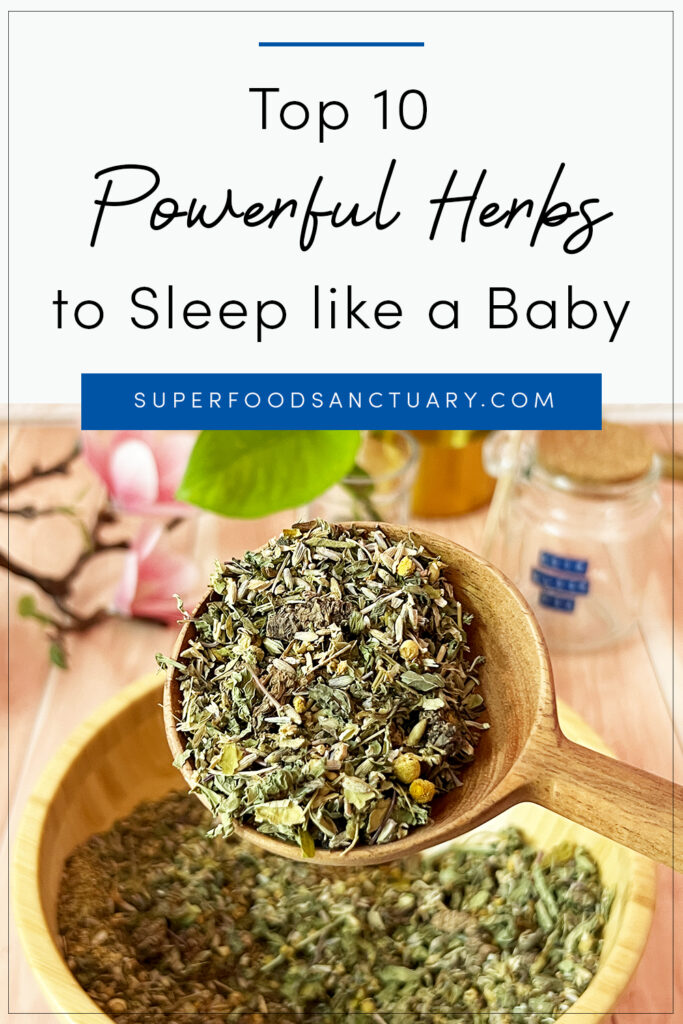
1. Valerian Root
Valerian (scientific name: Valeriana officinalis) has been used since ancient times in Rome and Greece for its medicinal properties. It is the most studied herb for sleep disorders. Its use has been associated with anxiolytic effects which means it works like an antianxiety medication or minor tranquilizer, thereby promoting deep sleep.
The roots of the valerian herb are the part of the plant that boasts health benefits including its nervine relaxant effects that help in treating insomnia, sleeplessness, tension, inability to feel rested and anxiety.
A major compound in valerian roots called valerenic acid inhibits the breakdown of the neurotransmitter GABA levels in the brain, which facilitates better quality sleep.
Scientific evidence shows that valerian reduces wake time after falling asleep (source 1), speed up sleep latency, which is the amount of time it takes one to fall asleep when you get in bed (source), lengthen sleep duration (source) and improve insomnia severity score (source).
Valerian can be consumed as an herbal tea, tincture or supplement. It has a distinct odor that can be unpleasant to many so it is usually mixed with other herbs such as peppermint, lemon balm, lavender and more to mask it’s smell.
To make valerian tea, pour 1 cup of boiling water over 1 teaspoon of dried valerian root (you can also add one teaspoon of another aromatic herb of choice like peppermint (where to get it) and steep for 5-10 minutes then consumed before bed.
For tinctures, take 1 to 1.5 teaspoon of a 1:5 tincture or as advised by a health care professional.
According to research, valerian supplement capsules can be taken at doses of 160-600 mg up to 2 hours before bed to reduce insomnia (source).
Carlyle Valerian Root Capsules | 240 Count | Herb Extract Supplement | Non-GMO, Gluten Free
2. Lavender
Native to the Mediterranean, lavender (scientific name: Lavandula) is among the top 10 powerful herbs for sleep.
Studies show that lavender has strong sedative, antidepressant and calming properties. It helps relax frayed nerves, alleviate anxiety and stabilize your mood (source).
The beautiful pale violet flowers of this plant is where its medicinal uses lie. These flowers are dried to make lavender tea, found in many commercial sleep blends to promote a good night’s rest.
Fresh lavender flowers undergo a process of steam distillation to extract lavender essential oil (where to get it), a powerful product that is known for its relaxing and sleep inducing effects.
Research suggests that what makes lavender so effective in inducing good quality sleep is one of its active compounds called silexan. A 2015 study investigated the effects of silexan on people suffering from disturbed sleep and anxiety-related restlessness. The results showed that participants who took silexan had significant improvements in their sleep anxiety levels compared to those that took a placebo (source).
A teaspoon of dried lavender buds can be steeped in hot water for 5-10 minutes and sipped as an herbal sleep tea.
Inhaling lavender essential oils can also be very beneficial in promoting rest and relaxation. Add 5-7 drops of lavender essential oil in a cold air diffuser together with 100 ml of water diffuse for 15 minutes before bedtime. The aroma of lavender helps with anxiety, insomnia, restlessness, headaches/migraines and depression.
Frontier Co-op Organic Whole Lavender Flowers 2.72oz
3. Chamomile
A member of the daisy family, chamomile (scientific name: Matricaria recutita) is a popular herb that is known to help promote sleep. It has been used since 5000 years ago, as seen in ancient medicinal scripts from Egypt, Greece and Rome, making it one of the oldest medicinal herbs to be consumed.
Chamomile acts as a nervine stimulant which makes it a good remedy for sleeplessness/insomnia, anxiety and gastrointestinal symptoms. It is widely recognized as a mild tranquillizer and sleep-inducer. Its sedative effects may be attributed to apigenin, a flavonoid present in it that binds to benzodiazepine receptors in the brain (source).
The dried flowers of this plant can be used to make a herbal tea, tincture or supplements.
To prepare an herbal tea for sleep, add 2-3 teaspoons of dried chamomile flowers into a cup and pour 1 cup of boiling water over it. Let it steep for 5-10 minutes then strain and sip. A 2015 study published in the Journal of Advanced Nursing, found that drinking chamomile tea at night for two weeks helped women who had given birth and struggled to sleep alleviate depression and sleep quality problems (source).
A chamomile tincture can be made by infusing dried chamomile flowers in grain alcohol (1:5, 45% alcohol) for about a month. Strain when the time is up and store in an amber glass dropper bottle. 30 to 40 drops of this tincture can be taken in hot water before bed.
Chamomile supplements are also effective for those having trouble sleeping. Taking a 200 milligram chamomile extract capsule once a day for 28 days has been shown to significantly improve sleep quality in the elderly (source).
Starwest Botanicals Organic Chamomile Flowers (Croatia), 1-pound Bag
Horbäach Chamomile Flower 1100mg | 200 Capsules | Non-GMO, Gluten Free Supplement
4. Lemon Balm
Belonging to the mint family, lemon balm (scientific name: Melissa officinalis) is known for its calming effects that aid in better sleep as well as reducing symptoms of anxiety and stress.
Clinical trials support its potential use for sleep disorders by reducing stress, depression and anxiety.(source 1, (source 2)
In an in vitro study, active constituents of lemon balm, rosmarinic acid, oleanolic acid and ursolic acid, were shown to inhibit gamma-aminobutyric acid (GABA) catabolism, thus possibly increasing GABA levels (source). Gamma-aminobutyric acid (GABA), which is known for producing a calming effect, is a neurotransmitter, which is a chemical messenger in your brain. It helps reduce anxiety, panic and stress through slowing down your brain by blocking specific signals in the central nervous system (the brain and spinal cord).
Lemon balm is taken as a supplement, tincture or in form of an herbal tea for sleep.
It has a citrusy minty taste which makes it a great addition to sleep tea blends with valerian root, one of the top sleep herbs we saw above, that has a bit of an unpleasant taste when taken alone.
To prepare lemon balm tea, steep ¼ to 1 teaspoon (1.5-4.5 grams) of dried herb per cup of hot water for 5-10 minutes before consuming.
Lemon balm capsules can be taken at doses of 300-500 milligrams up to three times a day. One study showed that for insomnia and anxiety, the effective dose is 300mg twice daily for 15 days (source).
In another study, 1200 mg of lemon balm extract once daily was shown to help decrease the stress and tension related to premenstrual dysphoric disorder (source).
5. Passion flower
Passion flower (scientific name: Passiflora incarnate), native to the southeastern United States and Central and South America, is a climbing vine with white and purple flowers.
The herb has been used by Native Americans for its purported calming effects that help with sleep, anxiety and stress. It contains nerve-relaxing flavonoids which assist in de-stressing and falling asleep easier.
Research shows that passionflower reduced the time it took to fall asleep and increased the duration of sleep (source).
One study found it to have a significant sedative and calming effect (source).
Passion flower also helps relieve anxiety symptoms (source).
You can consume it as an herbal tea tincture or the in form of supplements.
To make passion flower tea, steep 1 teaspoon of dried herb in one cup of boiling water for 5-10 minutes.
Passion flower tincture can be taken as 10 to 60 drops, three times daily.
6. Hops
Hops are the dried, flowering parts of the hop plant (scientific name: Humulus lupulus). Hop flowers are a strong nervine relaxant and contain methylbutenol which is a sleep-inducing chemical that improves sleep quality.
The strong aroma of hops induces sleep in people with sleeplessness which is why some physicians in the 1900s recommended placing sachets of powdered hops inside their pillows to their patients.
Hops are thought to interact with melatonin receptors, and they are often combined with other agents such as valerian.
Scientific evidence shows that a combination a mixture of valerian, passion flower, and hop extract and found significant improvements in sleep time, sleep latency, number of nightly awakenings, and insomnia severity index after a 2 week treatment (source).
Research also showed a reduction of sleep latency after a treatment period which lasted for 4 weeks with a fixed extract combination of valerian and hop (source).
The usual dosage of hops is 0.5 grams of the dried herb prepared and consumed as a tea or dry extract. The flowers also have a bitter taste so it’s best to combine them with other herbs such as mint, chamomile or lavender when brewing a tea.
Organic Bio Herbs-Organic Dried Hop (Humulus lupulus) 6 Oz.
Herb Pharm Certified Organic Hops Liquid Extract for Calming Nervous System Support – 1 Ounce
7. St. John’s Wort
Another one of the best herbs for sleep is St. John’s wort (scientific name: Hypericum perforatum). It is a weed which grows wildly in pastures. It has been used as a medicinal treatment for more than 2000 years. Paracelsus (1493-1541), a Swiss physician and alchemist described its use in treatment of depression.
The yellow flowers of this herb are rich in tryptophan, which boosts serotonin synthesis. Serotonin is dubbed ‘the feel good’ hormone and it is associated with happiness, focus and calmness. It reduces the symptoms of depression and helps you sleep peacefully at night.
Research shows that many clinical trials tested the herb St. John’s wort for mild to moderate depression. One study reported that 900 mg of St. John’s wort decreased scores of the sleep problem scale compared with placebo in perimenopausal women after 12 weeks of oral administration (source).
It is a good alternative to conventional antidepressants for mild to moderate depression. St. John’s wort can be taken as a tea, tincture or in supplement form, however it must be used with caution because it can interact with certain medication.
The usual dose is 300 milligrams 3 times a day for 6 weeks, standardized to 0.3% hypericin content (source).
If using it as a herb-infused oil rubbed onto your skin, apply it only at night time before bed since it is photo sensitive meaning it can make your skin sensitive to sun exposure with it applied on.
Starwest Botanicals Organic St. John’s Wort Herb C/S, 4 Ounces
8. Ashwagandha
Ashwagandha (scientific name: Withania somnifera), also called Indian ginseng, is commonly used in India as a medicinal herb.
In ancient Indian medicine, Ayurveda, ashwagandha is known as a rejuvenating herb. It helps lower elevated cortisol (stress hormone) levels.
This herb is an adaptogen, which are compounds known to help our bodies manage stress and restore balance after a stressful situation. It also acts like a sedative making it an effective natural sleep aid.
Studies show that ashwagandha is effective at improving sleep onset latency and quality of rest (source).
According to research, triethylene glycol (TEG), which is an active sleep-inducing component of Ashwagandha leaves could potentially be useful for insomnia therapy because it positively affected rapid eye movement (REM) sleep (source).
Ashwagandha can be taken as a powder form in tea or capsules. The typical dose is 1-6 grams of whole herb a day.
A tea can be made by boiling the herb in water for about 15 minutes, then consumed 1-3 times throughout the day.
9. Skullcap
Skullcap (scientific name: Scutellaria lateriflora) is a Native American plant, which has been used for more than 200 years as a herbal medication. Its dried leaves and stems are used in teas to treat anxiety, stress and insomnia.
The name skullcap refers to the flower’s resemblance to helmets worn by European soldiers.
Studies show that skullcap has been shown to boost mood and reduce symptoms of anxiety.
A 2013 study conducted on 43 participants found that those who received 1,050 mg of American skullcap daily for 2 weeks reported significant enhancements in mood, without any reduction in energy and cognition, compared to a placebo group (source).
Skullcap is thought to positively affect mood and reduce anxiety by stimulating gamma-aminobutyric acid (GABA), a neurotransmitter that calms nerves (source). Many anti-anxiety medications work similarly by increasing GABA activity.
This herb contains large amounts of flavonoids, including scutellarin and baicalin, which are believed to be the active components accounting for its sedative and antispasmodic activity.
Skullcap is widely used nowadays as a sedative and sleep aid in the herbal world by making a tea blend with it including other sleep inducing herbs such as valerian and lemon balm.
To make a tea out of skullcap, add 1 tsp of dried herb into a cup and pour 1 cup of boing water over it. Steep for 10 to 15 minutes then strain and sip.
For skullcap tinctures, about 2 to 4 ml taken 3 times a day is safe. Be sure to limit doses to no more than the package recommendation.
Precaution: Skullcap is associated with liver damage and even liver failure in some people. However, it’s important to note that these incidences mostly involved supplements containing multiple herbs, and not just skullcap (source).
Herb Pharm Certified Organic Skullcap Liquid Extract for Nervous System Support, 1 Fl Oz
10. Oat Straw
Oat Straw (scientific name: Avena sativa) refers to the leafy sheafs and stalks covering the oats, which are often discarded during oat harvesting. It is the part of the plant that contains the highest concentrations of bio-active aminos and polyphenols said to support brain function, support sleep and reduce levels of anxiety.
In Traditional Chinese Medicine, oat straw is used to alleviate conditions related to anxiety, mood imbalance, and sleep. It is purported to calm and strengthen the nervous system, relieve stress and calm emotions, reduce stress and encouraging deep and restful sleep.
Research shows that oatstraw extract may improve mood by inhibiting the enzyme phosphodiesterase type 4 (PDE4), which is found in immune cells (source). Inhibiting PDE4 may reduce stress, anxiety and depression (source).
You can make an herbal infusion with oat straw as follows: place a cup of the dried herb into a quart mason jar and pour boiling water over it. Put the lid on and let it steep for 4-8 hours before straining. Drink 1 or more cups of it daily. Infusions can be kept for 2-3 days in the refrigerator. You can heat them up or enjoy cold.
For flavour, other good tasting herbs for sleep like lavender and chamomile can be used. Licorice root can also be used for a naturally sweet flavour. Raw honey and other natural sweeteners can also be added to your infusion after straining.
Frontier Co-op Organic Cut & Sifted Oatstraw Green Tops 2.19oz
Horbäach Avena Sativa Extract 1150 mg | 200 Capsules | Oat Straw Extract | Non-GMO, Gluten Free
How to Use Herbs for Sleep
1. Sleep Supplements
Herbal sleep supplements are available as capsules containing extracts of effective herbs for sleep.
One of the best most affordable herbal sleep supplement you can get online is Deep Sleep by Herbs Etc. It contains poppy, valerian, passionflower, chamomile, lemon balm herb, oat seed and orange peel. Most of these herbs work in synergy to promote restful sleep.
2. Herbal Tea
This is my go-to herbal tea for sleep that works like a charm to make you instantly sleep like a log. It’s best taken piping hot, 15 to 30 minutes before bed time. If you’re experiencing insomnia, this is the right recipe for you!
Deep Sleep Blend to Fall Asleep Like a Baby
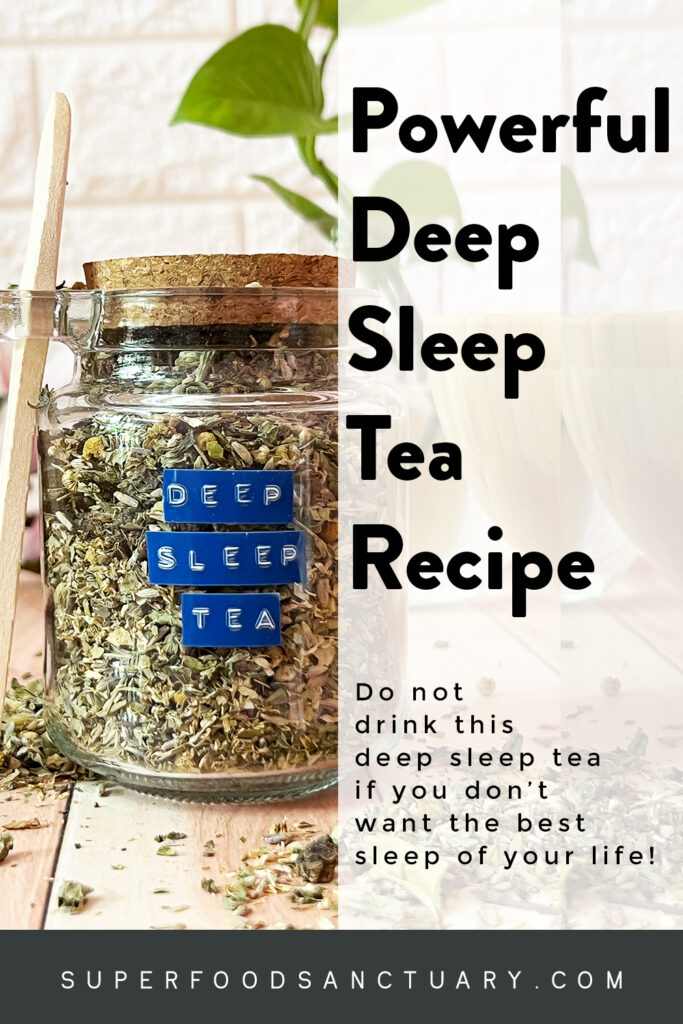
What you need
- ½ cup of dried lavender (where to get it)
- ½ cup of dried chamomile (where to get it)
- ½ cup of lemon balm (where to get it)
- ½ cup of passionflower (where to get it)
- 1/3 cup of valerian root (where to get it)
- Glass jar for storage (where to get it)
- Large bowl and spoon for mixing (where to get it)
- Tea infuser (where to get it)
Directions
- Mix the above herbs in a large bowl and store in a dry airtight glass jar.
- Add 1 heaping teaspoon of the herb blend to a tea infuser and steep in 1 cup of boiling water for 15 minutes.
- You can sweeten with raw honey (where to get it) before sipping.
- Drink every night before bed to wind down and fall asleep easier.
3. Sleep Gummies
4. Moon Milk
5. Essential Oil Diffusion
6. Sleep Cream
7. Pillow Spray
8. Relaxing Baths
Take Care
Please consult your doctor before taking any of these herbs for sleep, especially if you are under treatment for any acute, chronic and/or debilitating health condition. Certain drugs can interact with the medicinal effects of these herbs.
Pregnant or nursing mothers are advised to seek the advice of a doctor before incorporating herbs in their diet or lifestyle.
The above information is not intended to be a substitute for professional medical advice, diagnosis, or treatment. Always seek the advice of doctor with any questions you may have regarding a medical condition.
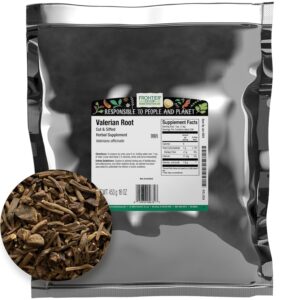
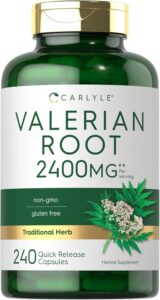
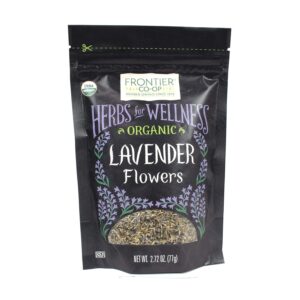
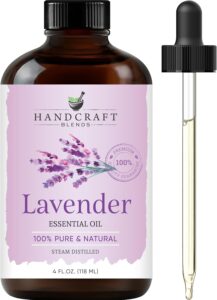
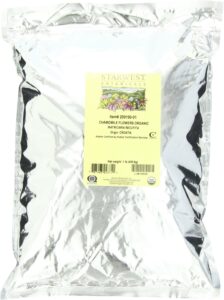
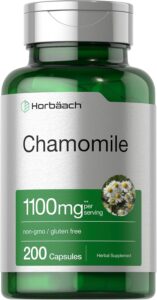
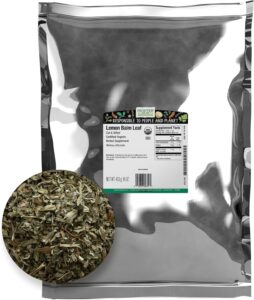
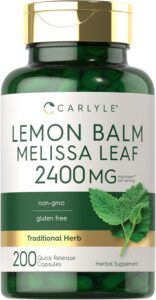
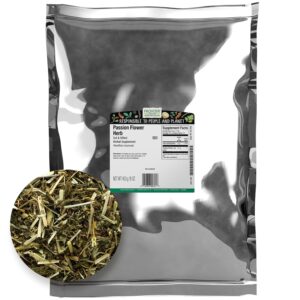
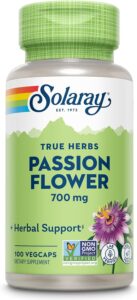
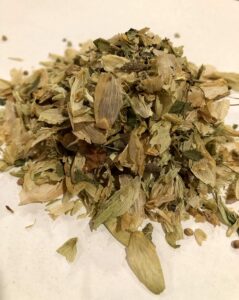
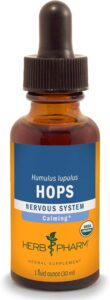
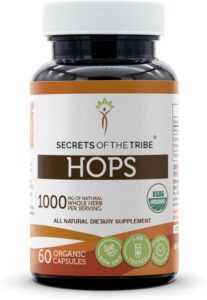
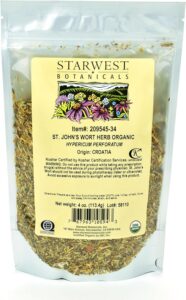
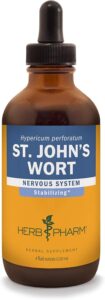
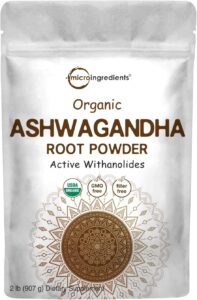
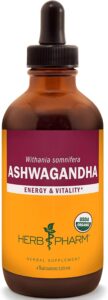
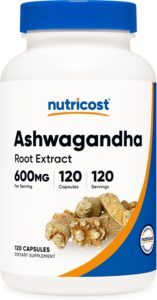
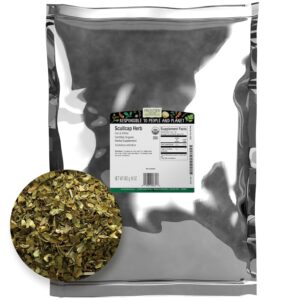
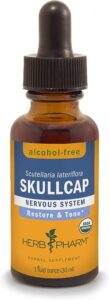
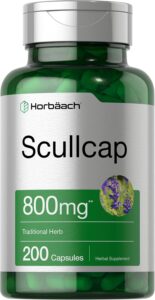
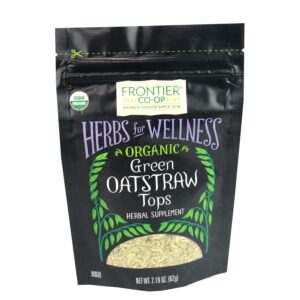
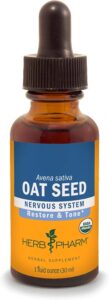
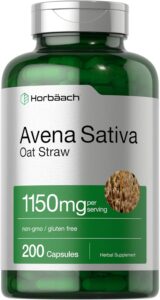
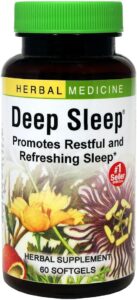
Leave a Reply